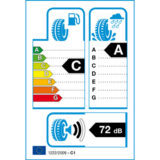
Indonesia initiates WTO dispute over EU fatty acid regulations
In a significant move, Indonesia has officially filed a dispute with the World Trade Organization (WTO) against the European Union’s regulations on fatty acids, which use palm oil as a key raw ingredient found in both consumer products like cosmetics, pharmaceutical products and industrial lubricants.
The dispute centers on the EU’s stringent measures on the import and use of fatty acids, which Indonesia argues unfairly target its palm oil industry, a vital sector for the nation’s economy.
The Indonesian government contends that these EU regulations are discriminatory and could severely impact the livelihoods of millions of Indonesians dependent on the palm oil sector. By challenging these measures at the WTO, Indonesia seeks to protect its interests and ensure fair treatment in the global market.
The EU’s regulations, aimed at reducing the environmental impact of palm oil production, have been criticized by Indonesia for being overly restrictive and not taking into account the country’s efforts to produce palm oil sustainably. Indonesia has made significant strides in improving sustainability and environmental protection in its palm oil industry, efforts that it feels are not adequately recognized by the current EU standards.
This WTO dispute highlights the ongoing global debate over environmental protection, trade regulations, and the palm oil industry’s sustainability. As the case progresses, it will be closely watched by international observers for its implications on trade relations, environmental policies, and the global palm oil market.
Indonesia’s move to challenge the EU’s fatty acid regulations at the WTO underscores the country’s determination to defend its palm oil industry and advocate for fair and equitable trade practices. The outcome of this dispute could have far-reaching consequences for international trade, environmental standards, and the economies of palm oil-producing countries.
In October 2021, a coalition of EU fatty acid producers filed an anti-dumping complaint against imports from Indonesia. The EU initiated an investigation in November 2021.
The product scope covered certain fatty acids with specified carbon chain lengths and iodine value. Indonesia took issue with certain aspects of the product definition.
In August 2022, the coalition of EU fatty acid producers withdrew their complaint. Some interested parties argued the investigation should then be terminated.
However, in January 2023 the EU still imposed definitive anti-dumping duties ranging from 15-46% on imports of the fatty acids from Indonesia.
Indonesia argues multiple violations around insufficient evidence to initiate, lack of injury and industry standing, improper procedures followed, unreasonable constructed pricing methodology, excessive duties versus dumping margins, and more.
Separately, Indonesia challenges the EU’s specific approach to constructing normal value for products sold domestically below a 5% threshold as inconsistent with WTO rules.
Through this request, Indonesia seeks consultations with the EU and reserves the right to pursue further WTO dispute settlement steps regarding the anti-dumping duties and procedures at issue.
Indonesia’s so-called “request for consultations” is the first step in a formal WTO dispute. It gives both parties around 60 days to resolve their differences before a formal WTO adjudication panel is formed.












